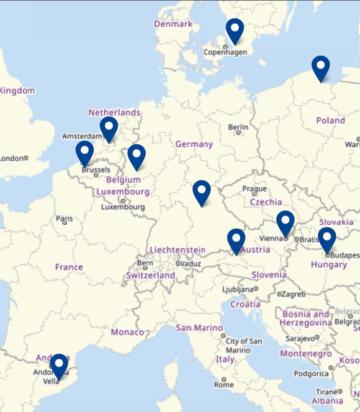Help us make the FRA website better for you!
Take part in a one-to-one session and help us improve the FRA website. It will take about 30 minutes of your time.

EU Charter of Fundamental Rights
Artículo 54 - Prohibición del abuso de derecho
Ninguna de las disposiciones de la presente Carta podrá ser interpretada en el sentido de que implique un derecho cualquiera a dedicarse a una actividad o a realizar un acto tendente a la destrucción de los derechos o libertades reconocidos en la presente Carta o a limitaciones más amplias de estos derechos y libertades que las previstas en la presente Carta..



